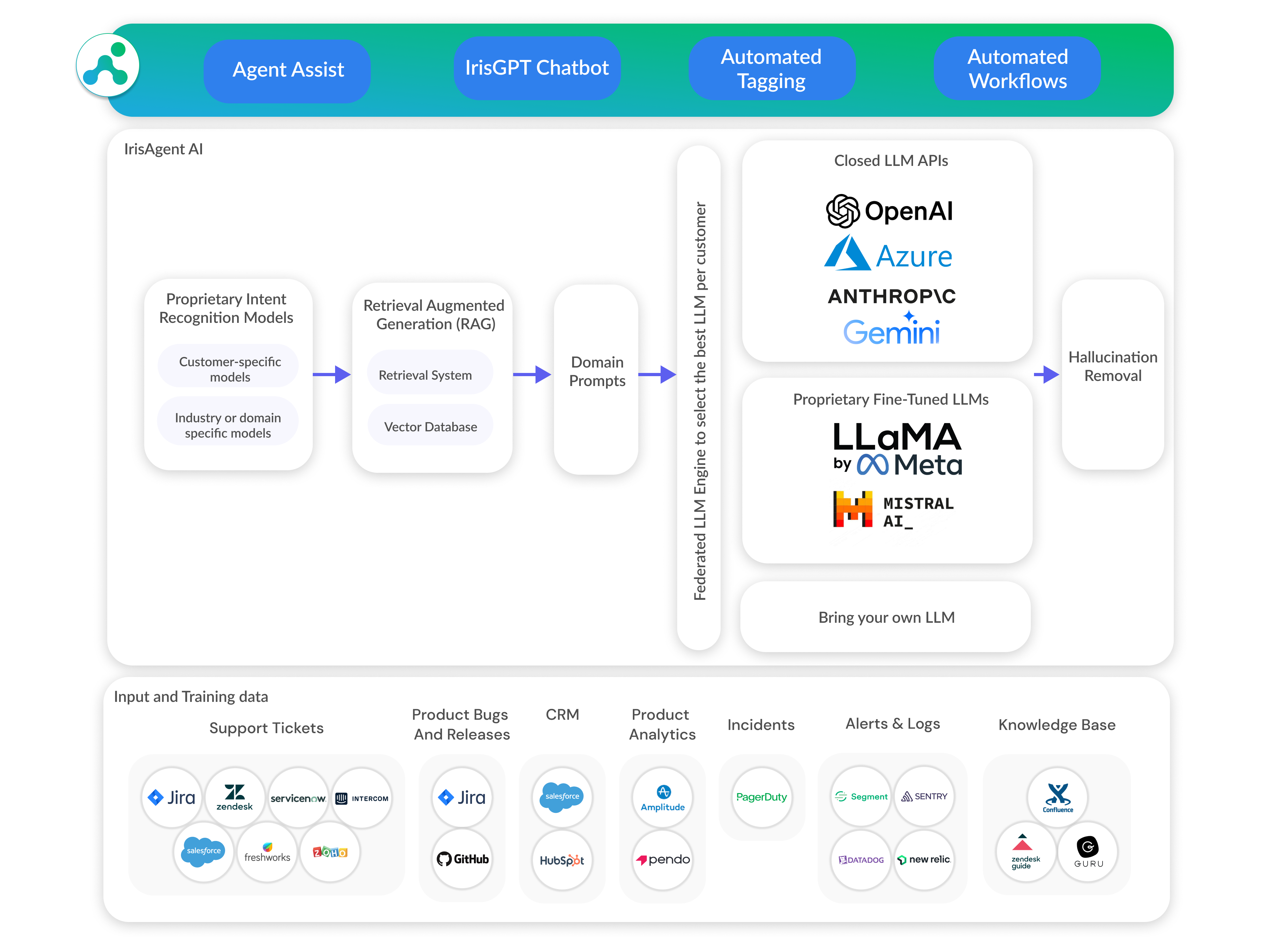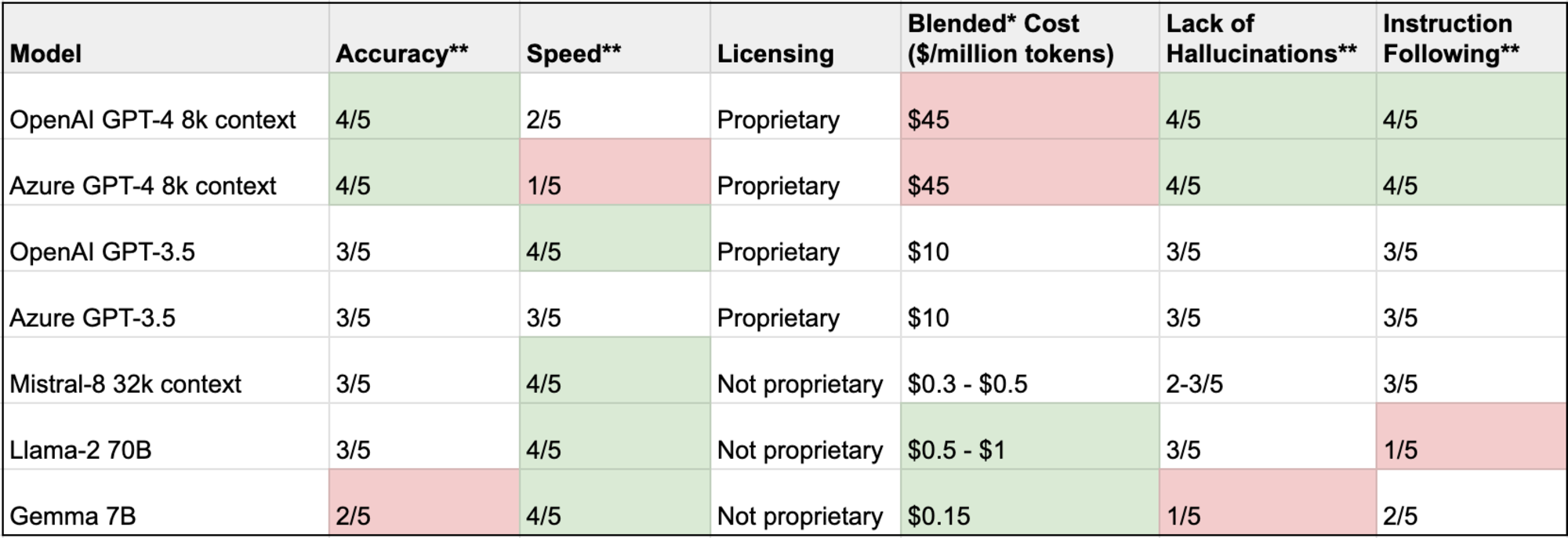Demystifying AI Copilots: What Is AI Copilot and Its Role in Tech?
An AI copilot is an AI assistant and artificial intelligence assistant embedded within digital tools to facilitate tasks, helping users achieve more in less time with enhanced precision. From coding to content creation, it learns, adapts, and offers support tailored to your needs. This guide unpacks the working of AI copilots, showcasing their place in today’s technology-driven world.
Key Takeaways
AI copilots are intelligent systems that enhance productivity by providing personalized assistance, simplifying complex tasks, and automating mundane activities, with advanced capabilities ranging from code completion to decision-making support in various sectors.
Generative AI, particularly Large Language Models (LLMs), is pivotal in AI copilots, enabling them to process user inputs, generate content, and provide real-time support and multitasking across multiple platforms, significantly improving workflow efficiency.
Choosing the appropriate AI copilot requires understanding its capabilities, ensuring compatibility with user needs, and considering factors like customization options, seamless system integration, and adherence to data protection standards.
Understanding AI Copilot: The Basics
AI copilots are advanced, intelligent systems that work alongside users to provide guidance and personalized assistance in accomplishing a wide range of tasks. They are designed to be an invaluable asset to users in various activities. They play a crucial role in enhancing productivity, simplifying complex tasks, and offering support and guidance. Powered by AI algorithms, these systems have the ability to understand natural language and context, predict user needs, and provide informed suggestions.
Through continuous learning from user behaviors, AI copilots adapt over time to provide contextually relevant suggestions that simplify complex tasks. Some benefits of AI copilots include:
Streamlining navigation and consolidating resources, allowing for quick access to necessary information
Reducing the time spent on exhaustive searches
Facilitating communication and efficient task management through interconnected platforms
These copilots are integrated across various systems to create a seamless user experience.
The Core Functionality of AI Copilots
The core functionalities of an AI copilot are manifold. They enhance task management by:
Synthesizing key information from various sources
Offering invaluable assistance with navigating and using applications on PCs, tailoring the user experience to individual preferences
Automating repetitive and mundane tasks through the use of AI algorithms, optimizing efficiency.
Additionally, they are capable of code completion, making them versatile enough to assist in various domains.
Everyday AI Companions in Action
AI copilots, also known as AI assistants or virtual assistants, have become our everyday AI companions, seamlessly fitting into various aspects of our lives. They:
Manage emails and calendar events
Sort through large volumes of data to present relevant information to users, such as summarizing information from several emails
Learn and adapt to individual preferences for more personalized assistance
Capture and analyze subtle cues to provide tailored responses that resonate with user behavior over time
The way they do all of this is truly remarkable. They serve as your everyday AI companion, enhancing daily activities and tasks with their conversational chat interface and abilities in information search, text and image generation, and coding assistance.
In the industrial sector, they help monitor essential systems and predict maintenance needs before problems arise. For automotive enthusiasts, AI copilots assist in diagnosing vehicle issues, offering a seamless workflow between the vehicle and the driver.
Types of AI Copilots
The world of AI copilots is diverse, with different types of systems designed to cater to a variety of needs. Enterprise AI copilots, for instance, are advanced systems designed for enterprise-wide deployment, boasting capabilities such as providing reasoning engines, analytics, and sophisticated security measures. What sets higher-tier enterprise systems apart from lower-tier AI copilots is their ability to offer domain-specific knowledge and support complex, multi-step processes.
These enterprise systems are built with the capacity for seamless multilingual communication, a must-have for global business operations. AI copilots can also enhance their functionality with plugins and GPTs specialized in various areas:
design
vacation planning
cooking
fitness training
This caters to niche user needs.
Generative AI and AI Copilots

The advent of generative AI has revolutionized the capabilities of AI copilots. Large language models (LLMs) in AI copilots, such as Copilot for Microsoft 365, are crucial for processing user inputs and generating contextually relevant, human-like text. These LLMs interpret user queries and generate appropriate responses, forming the backbone for intelligent AI interactions within Microsoft 365 applications.
Generative AI enables these LLMs to create new content, setting them apart from predictive AI models that focus on classifying or forecasting based on input data. As a result, AI copilots using LLMs can support a wide range of productivity tasks across Microsoft 365 applications, from drafting emails to creating documents and spreadsheets. Microsoft Copilot, for instance, uses generative AI technology to embed within the context of existing applications, allowing users to enhance their workflows using natural language processing.
From Text to Tasks: AI Models at Work
AI models in copilots are instrumental in transforming text into tasks. They employ tokenization and semantic analysis, key components of natural language processing (NLP), to comprehend the structure and meaning of user inputs for delivering accurate responses. They are also capable of enabling conversational interactions in multiple languages, offering real-time translation services across web portals. Thanks to machine learning, AI copilots continually improve their support based on user interactions, leading to enhanced streamlining of workflows and automation of tasks.
Their ability to generate a variety of content types, including text and images, based on user prompts showcases their versatility in creative tasks.
Enhancing Decision-Making Processes
AI copilots play a pivotal role in enhancing decision-making processes. AI copilots like Microsoft 365’s Copilot uses large language models (LLMs) to provide decision-making support across various enterprise domains. The Semantic Index feature in Microsoft 365’s Copilot enables sophisticated interpretation of user queries, offering multilingual and meaningful responses. These LLMs have the ability to quickly sift through large datasets, delivering the most actionable and germane information for users’ decision-making needs.
Their ability to employ contextual relevance and access to enterprise-specific datasets enhances the quality, accuracy, and relevance of information for users.
AI Copilots in the Workplace
AI copilots have made significant strides in the workplace, revolutionizing the way AI copilots work. They significantly reduce the time employees spend on repetitive and time-consuming tasks, allowing them to focus on higher-value strategic work.
Here are some examples of how AI copilots have improved productivity:
At CI&T, Tabnine has led to developers accepting 90% of the AI’s single-line code suggestions, greatly enhancing productivity.
AI copilots have improved productivity by 20% to 100% for developers at AnswerRocket.
Microsoft’s GitHub Copilot has been widely accepted with significant lines of code contributions from its suggestions.
These examples demonstrate the positive impact that AI copilots can have on productivity in the workplace.
The automation of mundane tasks with AI leads to tangible benefits for companies, including:
Cost savings
Efficiency improvements
Processing vast datasets to identify patterns and insights
Enabling employees to make informed decisions more efficiently
Liberating teams to devote more time to creative and strategic tasks
Although the adoption of AI copilots raises potential concerns about job displacement and the need for human labor in certain roles, they are highly valued among early users and often considered a deciding factor during job selection. This indicates a growing appreciation for their role in the workplace.
The use of AI copilots in contact centers has transformed customer service by equipping agents with tools to handle complex issues more effectively, thereby enhancing the customer experience.
Boosting Agent Productivity
AI copilots have a profound impact on boosting agent productivity. In Outlook, they enhance agent productivity by managing email effectiveness, summarizing conversations, drafting replies, and managing calendar appointments. In customer service, they draft emails, summarize cases and conversations, and automate tasks, enabling agents to provide a more personalized service. They also support more efficient internal communication, assisting in interactions with various stakeholders and reducing communication-related delays.
Furthermore, agents can utilize AI-powered tools to swiftly generate timeline highlights, providing a concise overview of crucial activities without manually sorting through case details.
Streamlining Financial and HR Operations
AI copilots also play a vital role in streamlining financial and HR operations. They aid in analyzing and handling financial data, enhancing the efficiency of financial operations. For instance, Excel users can instruct Copilot to perform data analysis, summarization, or visualization through natural language prompts, thus streamlining financial tasks.
Real-Time Support and Multitasking with AI Copilots
Real-time support and multitasking are some of the salient features of AI copilots that set them apart. They contribute to improving customer experience by auto-resolving issues, saving support costs, and providing easy access to knowledge, automated summaries, and optimized responses. AI copilots in real-time customer support systems can help businesses identify and resolve issues promptly, ensuring a high-quality customer experience.
By providing real-time assistance, they support enterprise customers and employees in a variety of tasks. This immediate, context-aware support improves employee productivity and optimizes business operations. They engage with users by gathering initial context, requesting additional information, and generating runtime dialogs in everyday human language.
Immediate Assistance Across Web Portals
AI copilots are integrated into web portals offering instant help, where users can use plugins for tasks like restaurant reservations and travel booking. Semrush Copilot exemplifies AI assistance in web portals by providing SEO recommendations to professionals instantly.
Within collaborative platforms such as Microsoft Teams, Copilot offers real-time support by summarizing meetings for late attendees and organizing notes and tasks. AI chatbots facilitate web interactions and support users by answering FAQs and aiding in customer service, e-commerce, and lead generation.
Juggling Multiple Tasks Simultaneously
AI copilots display remarkable multitasking capabilities by efficiently handling multiple tasks at once, which streamlines operations and saves time. They can handle repetitive tasks and suggest responses based on past case resolutions, allowing for the handling of multiple tasks and queries simultaneously.
Tools like Microsoft’s Copilot can manage several tasks concurrently, such as engaging users with Q&A while simultaneously generating content. Agents can also utilize AI-powered tools to swiftly generate timeline highlights, providing a concise overview of crucial activities without manually sorting through case details.
Business Applications of AI Copilots
AI copilots have made significant strides in a range of industries, demonstrating their capacity to revolutionize traditional processes, enhance efficiency, and ensure safety. Their applications span from aviation and automotive sectors to healthcare, software development, banking, and customer service companies, each showcasing the versatility and adaptability of AI technologies.
In Aviation
AI copilots in aviation are redefining the norms of flight safety and operational efficiency. These advanced systems assist human pilots by monitoring aircraft systems, predicting potential issues, and even managing flight controls in certain scenarios. AI copilots can analyze vast amounts of data from previous flights to optimize flight paths, reduce fuel consumption, and predict maintenance needs before they become critical, thus ensuring a safer and more efficient flying experience.
In Automotive
The automotive industry has seen a significant impact from the integration of AI copilots, particularly through autonomous driving and driver-assistance systems. AI copilots in vehicles analyze real-time data from various sensors and cameras to navigate safely, recognize obstacles, and adhere to traffic laws, thereby reducing human error and enhancing road safety. Driver-assistance features like adaptive cruise control, lane-keeping assistance, and automated parking are early manifestations of AI copilot technologies, paving the way for fully autonomous vehicles in the future.
In Healthcare
AI copilots are revolutionizing healthcare by assisting in diagnosis, patient care, and surgery. By analyzing medical records, imaging data, and other patient information, AI systems can help diagnose diseases with high accuracy, often at early stages when they are more treatable. For patient care, AI copilots offer personalized treatment plans based on individual patient data, improving outcomes. Furthermore, in surgery, AI-assisted robotic systems allow for precision and control beyond human capabilities, enabling minimally invasive procedures with quicker recovery times.
In Software Development
The realm of software development has greatly benefited from AI copilots, which assist developers in coding, debugging, and managing projects. These AI systems can suggest code completions, identify potential bugs, and offer solutions, significantly speeding up the development process. AI copilots can also assist in project management by analyzing project data to predict timelines, allocate resources efficiently, and monitor project health, facilitating more workflows and smoother project execution.
In Customer Service

AI copilots have become a cornerstone in customer service, operating as chatbots and virtual assistants to provide immediate, 24/7 support to customers. These AI systems and chat, can understand and respond to customer messages and queries in natural language, offer personalized recommendations, and even resolve complex issues without human intervention. This not only enhances customer satisfaction but also allows human customer service representatives to focus on more complex and sensitive issues, optimizing the overall service experience.
The Evolving Landscape of AI Copilots
The landscape of AI copilots is continually evolving, with continuous learning, customization, and enhanced creativity being at the forefront. Over time, AI copilots can be updated with new capabilities that include the ability to create custom AI models, enhancing their utility.
They empower users by enabling users in creative work such as enhancing employee productivity through enriching presentations, composing engaging emails, and clarifying action items.
Learning and Adapting: The Machine Learning Edge
AI copilots improve over time by utilizing machine learning to:
Learn from user interactions
Suggest proactive actions
Streamline workflows
Personalize assistance
For example, Microsoft Copilot integrates large language models, Microsoft Graph content, and Microsoft 365 applications, using machine learning to understand organizational workflows and refine their functionality.
This machine learning advantage empowers AI copilots to offer a cohesive and adaptive AI experience across various devices and contexts, leveraging user interactions for continuous improvement.
Fostering Enhanced Creativity
AI copilots have a role to play in fostering creativity. Advanced machine learning capabilities like GPT-4 enhance creativity by offering rapid access to the latest features for writing, coding, and designing. In Word, Copilot assists with generating and editing text, as well as transforming content into visual elements like tables. Copilot in PowerPoint can create presentations from various inputs, including notes and documents, and even generate original AI visuals.
Furthermore, AI copilots are being integrated into mobile apps to facilitate creativity and productivity on the go.
Integrating AI Copilots with Existing Systems
AI copilots integrate seamlessly with organizational systems, including Microsoft Teams and Microsoft 365, through frameworks like Microsoft Graph that allow access and search of content, supporting use within applications such as Word, Excel, Outlook, PowerPoint, OneNote, and Teams. Within these integrated systems, AI copilots are designed to adapt to a user’s preferred communication channels, enabling a smooth conversational interface on various platforms such as Slack or Microsoft Teams, and email, enhancing the user experience.
To maintain data security and privacy, Microsoft enforces Commercial Data Protection standards, ensuring that customer data from work and school accounts is not used to train the AI, and Microsoft does not have access to the user’s Copilot interactions.
Seamless System Integration
AI copilots can integrate with a variety of AI systems, forming a cohesive platform that ensures data integrity and ease of access across an enterprise. They are built upon both artificial intelligence capabilities and system integrations, enabling them to predict user needs and provide informed guidance.
Products like Microsoft’s Copilot demonstrate the versatility of AI copilots by offering deep integration with productivity suites such as Microsoft 365, providing contextual assistance across apps. With the use of plug-ins, AI copilots can enhance productivity by generating summaries and relevant data within specific applications, such as those provided by Microsoft Dataverse.
Data Security and Protection
Data security and protection are crucial considerations when incorporating AI copilots. Before deployment, organizations configure Microsoft Copilot to ensure data security, user privacy, and compliance with various regulations. To guarantee trustworthiness, AI copilots are subject to a series of reviews including Responsible AI review, security review, and privacy review. Secure and compliant integration of AI copilots involves adhering to privacy policies and regulatory compliance standards.
Microsoft Copilot is engineered with a ‘secure by design’ data infrastructure, balancing enhancement in functionality with strong adherence to security and data protection. The use of AI copilots in daily tasks involves handling sensitive data, which necessitates a robust focus on privacy and data integrity. Functional cookies utilized by AI copilots on web portals play a role in enhancing performance and offering instant assistance while securing data integrity.
Selecting the Right AI Copilot for Your Needs
Selecting the right AI copilot is a crucial step toward optimizing your interactions with these systems. But keep in mind that mistakes are possible when using AI copilots for tasks such as writing code, generating reports, or providing customer service. The key is to understand their capabilities, align them with your specific needs, and ensure seamless integration with your existing systems.
Assessing AI Copilot Capabilities
When assessing the capabilities of an AI copilot, it’s important to consider how the system can be improved with user feedback. This is particularly important for aligning their capabilities with the distinct needs of various user groups like creators, researchers, and programmers. Customization options for AI copilots enable the tailoring of responses to be more creative, precise, or balanced, allowing the technology to better fit the user’s specific requirements. Users must evaluate and adapt the suggested goals or responses of AI copilots to ensure they adhere to specific organizational guidelines and objectives.
When selecting an AI copilot, it is essential to consider factors that contribute to its seamless integration and overall performance within the intended context.
Compatibility with User Needs
Ensuring an AI copilot is compatible with your needs is essential. AI copilots must align with the end-user or the organization’s goals to be truly effective. Users must identify their needs, such as coding assistance, improving productivity, or data analysis, to select the right AI copilot. AI copilots should seamlessly integrate into existing systems to provide streamlined workflow and productivity gains without disrupting current operations.
For software developers, AI copilots can adapt to the dev environment and suggest code based on the user’s style and past code. As AI copilots handle potentially sensitive data, ensuring they operate within data protection frameworks like GDPR is essential for user trust.
Getting Started with AI Copilot
AI copilots have emerged as powerful tools that augment our interaction with technology, transforming the way we work and live. They streamline tasks, enhance productivity, and offer personalized assistance, thereby making our lives easier and more efficient. As the landscape of AI copilots continues to evolve, they are expected to become even more integral to our everyday lives, revolutionizing various sectors from the workplace to our personal lives. It’s clear that the future of AI copilots looks promising, and it’s only a matter of time before they become an indispensable part of our digital landscape.
Get started today with any of the below options:
AI Copilot for customer support to automate mundane tasks and respond faster to customers.
AI Copilot for SaaS support automation to automate technical support for SaaS businesses
AI Copilot for e-commerce to enable assistance for e-commerce and retail customer service interactions
AI Copilot for fintech to enable virtual banking assistance
Frequently Asked Questions
What is an AI copilot?
An AI copilot is an advanced, intelligent system that works alongside users to provide guidance and personalized assistance in accomplishing various tasks.
How does an AI copilot work?
An AI copilot works by utilizing AI algorithms to understand natural language, predict user needs, and provide informed suggestions based on continuous learning from user behaviors, ultimately simplifying complex tasks.
What are the applications of AI copilots?
AI copilots have a wide range of applications, including managing emails, summarizing information, adapting to user preferences, monitoring industrial systems, and assisting in software development through code completion. The applications are diverse and impactful.
How do AI copilots enhance decision-making processes?
AI copilots enhance decision-making processes by providing contextually relevant information and insights from large datasets, sifting through them to deliver the most actionable information for users' needs. This helps improve the quality and efficiency of decision-making.
What considerations should be made when selecting an AI copilot?
When selecting an AI copilot, it's essential to assess its capabilities, ensure compatibility with user needs, ensure seamless integration with existing systems, and prioritize data security and protection. These considerations are crucial for making an informed decision.





